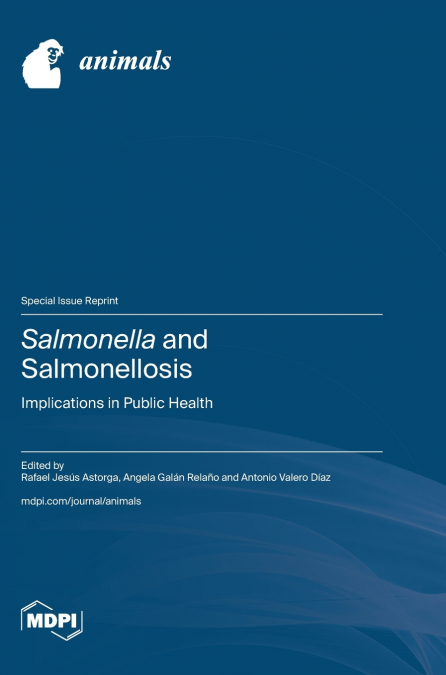
This Special Issue compiles studies on the impact of Salmonella on animal and public health, focusing on its presence throughout the food chain, from farm to fork. It includes eleven studies from authors across six countries, highlighting the global zoonotic threat posed by Salmonella and its contribution to public health risks. The research covers innovative strategies for controlling this pathogen, such as the use of bacteriophages, essential oils, and vaccines, with an emphasis on One Health approaches. It also highlights antimicrobial resistance, particularly in serotypes like S. Enteritidis and S. Typhimurium, which exhibit growing issues of multidrug resistance. Additionally, control methods in pork and poultry production, the impact of national Salmonella control programs, and the use of predictive models to improve food safety are explored. This Special Issue underscores the importance of integrated strategies combining pre- and post-harvest measures, promoting biosecurity, vaccination, and environmental management. It also advocates for research into new antimicrobial treatments and the development of sustainable methods to reduce pathogen persistence.